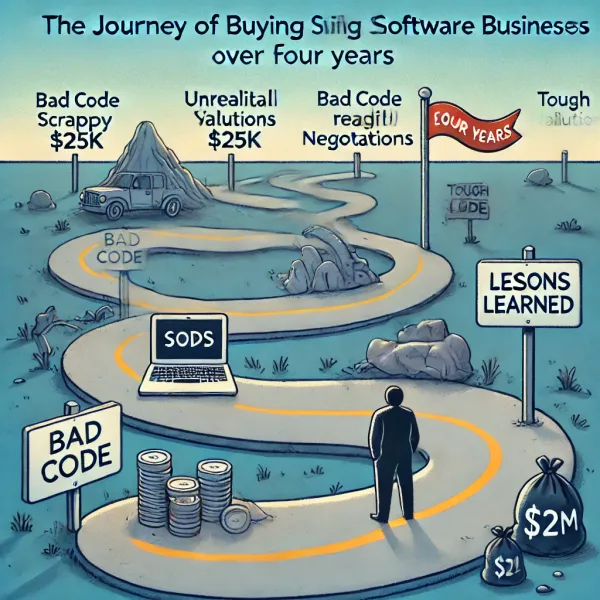Maybe A Thesis - V4

Watch:
Listen:
Company building is hard and capital inefficient.
Because of this, many businesses raise venture capital, which has a business model.
That business model requires outsized returns following a power law distribution.
A high percentage of these companies fail.
"Failure" is binary for a VC firm, the business either has an outsized positive outcome, or it is irrelevant.
"Failure" for us is relative. A "failed" VC backed startup with some revenue and some positive growth rate is an opportunity.
XO buys businesses that "fail" from the venture perspective.
We buy the best product in the category.
We buy "complete" products that are sellable today.
We buy a promising channel (i.e. the current source of customers).
We buy a growth rate, however nominal (3% MoM is fine!)
We buy initial customers.
In 1 sentence: XO buys VC backed companies with amazing products that ran out of time.
Notes:
- Are we anti vc? No not at all! it's just a specific tool. If anything it's just been applied too liberally.
- Do we deviate from this? Yep. all the time. If I had a bigger war chest, this would be the thesis. distressed venture.
- I want you to meet Paul Gram at the start and XO at the end:)
B-School Lesson Of The Week: Expectancy Theory
Expectancy Theory is about believing effort leads to rewards. There are 3 parts:
Effort -> Performance -> Outcome
- E to P Link (Effort to Performance):
- Employees wonder, "If I put in the effort, will I be able to reach the performance level expected of me?"
- P to O Link (Performance to Outcome):
- Once they meet the performance standard, they ask, "Will I receive the reward I desire?"
- O Linking to Itself (Outcome Reflection):
- After getting the reward, they consider, "Is this something I truly wanted?"
I‘ve never worked somewhere that really got this right or laid this out clearly. I think internally we have work to do here too.





